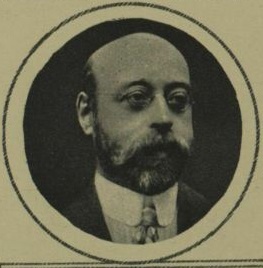Joe Williams (trade unionist) on:
[Wikipedia]
[Google]
[Amazon]
 Joseph Bevir Williams (10 August 1871 – 3 August 1929) was a British trade union leader.
Born in the
Joseph Bevir Williams (10 August 1871 – 3 August 1929) was a British trade union leader.
Born in the
JB Williams
Williams' son, also Joe, served in
 Joseph Bevir Williams (10 August 1871 – 3 August 1929) was a British trade union leader.
Born in the
Joseph Bevir Williams (10 August 1871 – 3 August 1929) was a British trade union leader.
Born in the Hulme
Hulme () is an inner city area and Ward (politics), electoral ward of Manchester, England, immediately south of Manchester city centre. It has a significant industrial heritage.
Historic counties of England, Historically in Lancashire, the nam ...
area of Manchester
Manchester () is a city in Greater Manchester, England. It had a population of 552,000 in 2021. It is bordered by the Cheshire Plain to the south, the Pennines to the north and east, and the neighbouring city of Salford to the west. The t ...
, Williams spent some time as a pupil-teacher
Pupil teacher was a training program in wide use before the twentieth century, as an apprentice system for teachers. With the emergence in the beginning of the nineteenth century of education for the masses, demand for teachers increased. By 1840, ...
before following his father by becoming a musician, finding work as a clarinetist at the Comedy Theatre. Concerned about working conditions in the industry, in 1893, he founded the Amalgamated Musicians' Union (AMU).Cyril Ehrlich, "Williams, Joseph (Joe) Bevir", ''Dictionary of Labour Biography'', vol.IX, pp.284–288
The union's first members were Williams' own colleagues, with forty attending the first meeting. Shortly afterwards, Williams' mother, Kate, recruited a group of musicians in Birmingham
Birmingham ( ) is a city and metropolitan borough in the metropolitan county of West Midlands in England. It is the second-largest city in the United Kingdom with a population of 1.145 million in the city proper, 2.92 million in the West ...
and, within a year, branches had been set up in a large number of provincial cities. As general secretary of the union, Joe successfully argued that part-time musicians should be permitted to join, but that members of military bands should not earn extra pay by working as civilian musicians in their spare time.
Williams became was elected to Manchester City Council
Manchester City Council is the local authority for Manchester, a city and metropolitan borough in Greater Manchester, England. Manchester is the sixth largest city in England by population. Its city council is composed of 96 councillors, three ...
in 1904 as the Labour Representation Committee candidate for Openshaw
Openshaw is a suburb of Manchester, England, about three miles east of the city centre. Historically part of Lancashire, Openshaw was incorporated into the city of Manchester in 1890. Its name derives from the Old English ''Opinschawe'', which me ...
, with the backing of Manchester and Salford Trades Council
The Manchester Trades Union Council brings together trade union branches in Manchester in England.
History
Efforts to bring trade unionists together across Manchester go back to the eighteenth century. In 1818 the cotton spinners persuaded othe ...
. However, two years later, he was declared bankrupt and therefore was excluded from the city council. In 1907, he was elected to the Parliamentary Committee of the Trades Union Congress
A parliamentary system, or parliamentarian democracy, is a system of democratic governance of a state (or subordinate entity) where the executive derives its democratic legitimacy from its ability to command the support ("confidence") of the ...
(TUC), later serving on its successor, the General Council of the TUC The General Council of the Trades Union Congress is an elected body which is responsible for carrying out the policies agreed at the annual British Trade Union Congresses (TUC).
Organisation
The council has 56 members, all of whom must be proposed ...
, and as President of the TUC in 1923. Musicians' Union,JB Williams
Williams' son, also Joe, served in
World War I
World War I (28 July 1914 11 November 1918), often abbreviated as WWI, was one of the deadliest global conflicts in history. Belligerents included much of Europe, the Russian Empire, the United States, and the Ottoman Empire, with fightin ...
and was killed aged just eighteen. Despite this, he supported the war and, frustrated with the Labour Party's anti-war stance, he was one of the proposers, in 1917, that a new trade union labour party should be created.
After many years of negotiations, in 1921, Williams persuaded the AMU's main rival, the National Orchestral Union of Professional Musicians, to merge into it. He remained general secretary of what was now remained the Musicians' Union until he retired in 1924; although only in his early fifties, he was in poor health following years of extremely long hours of work. He moved to Veyrières in France, where he died in 1929.
References